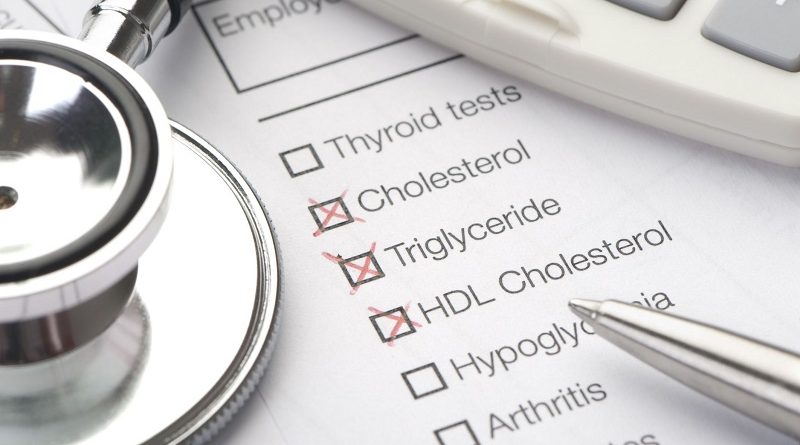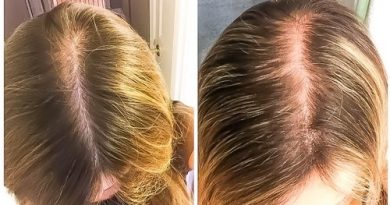Cholesterol and Triglycerides: Diet and Natural Remedies
I have read an article on metabolic diseases have listed the major metabolic diseases including hyperlipidemia and hypercholesterolemia characterized by values of triglycerides and cholesterol in the blood; in this article we explore the subject in order to understand what are the “enemies to be avoided” and what natural remedies that make you say “goodbye” to the problem.
What are cholesterol and triglycerides?
Cholesterol and triglycerides are fats (or lipids) by which the human body stores energy useful in case of necessity; The body fats are classified into two groups:
– “Simple” such as cholesterol and fatty acids
– “Complex” as phospholipids and triglycerides
Cholesterol and triglycerides therefore play a very important reserve function in the body, what makes them really dangerous is in fact their action but a excess of the amount thereof in the blood.

Moreover cholesterol is part of all our cell membranes and is the precursor of several hormones (progesterone, testosterone, cortisol, etc.), For all these reasons should not be considered only as a danger and must maintain good values in the blood to ensure the health of the body.
But what if your cholesterol is concentrated in high amounts in the blood? Normally, the risk is that it deposits in the arteries, threatening to obstruct them and causing cardiovascular problems . Furthermore, if endogenous origin (produced by the body, but in excess), its accumulation in the bile may form stones generating biliary colic or other diseases of the gall bladder.
“Good” cholesterol and “bad” cholesterol
The drawback of fats is that they do not dissolve in water and then in the blood. In fact, in order to transport these fats in the bloodstream, it is needed “structures called lipoproteins” among which we find the LDL (bad cholesterol) and HDL (good cholesterol).
The LDL serve to transport cholesterol from the liver (where it is synthesized) to the tissues and the blood stream. For this is known as “bad cholesterol” because excess cholesterol can be deposited along the walls of arteries, causing atherosclerosis and long cardiovascular problems even serious.
Lipoproteins HDL instead serve to move or lift the excess cholesterol from the tissues and the blood to the liver, thus avoiding a buildup along artery walls.
The cholesterol values recommended are:
- Total cholesterol: below 200 mg / 100dl
- LDL cholesterol: below 140 mg / dl 100
- HDL cholesterol: normal 35 to 60 mg / dl and 100 in favor of above 60 mg / dl 100.
- Ratio of total / HDL cholesterol: not more than 5 in men and not more than 4.4. in women
Causes of high cholesterol and high triglycerides
- Disiquilibrata diet rich in animal fats, sugar, fried foods, alcohol, etc.
- Excess weight
- Diseases such as diabetes, hypothyroidism, kidney or liver problems, …
- Menopause
- Age
- Taking medications such as cortisone, diuretics or birth control pills
- Possible biliary disorder
- Genetics
You may also like to read another article on MenHealthCare: Find out more about triglycerides and cholesterol
Diet for cholesterol and high triglycerides
The recommended diet is very similar to the Mediterranean diet and then provides:
- Reduce the intake of saturated fats (butter, cream, margarine, pastries industrial, etc.), simple sugars (white bread, pizza, white pasta, sugar, etc.) and some animal protein (red meat, aged cheese)
- Increase the amount of fiber, then legumes, fruits and vegetables
- Increase consumption of grains such as oats and barley
- Drink at least 1.5 liters of water a day, even as green tea
- Use extra virgin olive oil first cold pressing
- Increase your intake of omega 3 and omega 6 (seeds, nuts, vegetable oils, fish); You can also find it as a dietary supplement
- Also take the soy lecithin and garlic, two anti cholesterol foods and triglycerides.
Once improved nutrition, another good tip is to go on, at least 1 or 2 months, in an alkaline diet that will cleanse the most of your body and thus greatly lowering high cholesterol and triglyceride levels. I not advise you to choose the alkaline diet beginning because a switch from a diet rich in animal fats and proteins to supply much more restrictive could not be appreciated by your body; best to first get used to a healthier way of eating, such as the Mediterranean diet, and then move on to the alkaline. Relationship breakdown: know your options. Find experienced divorce lawyers in parramatta for your family issues. Find solution today!
Natural remedies for high cholesterol and high triglycerides
Definitely the best tips to follow are those relating to healthy eating and a healthy lifestyle with exercise, stress reduction and respect for timetables. But this is not always sufficient or immediate effect on lowering the level of cholesterol and triglycerides in the blood.
The nature luckily as always gives us valid remedies free of side effects …
Red fermented rice: acts directly on the synthesis of endogenous cholesterol through a mechanism of action similar to that of statins chemical (but without side effects) and is therefore able to reduce the total cholesterol, LDL and triglycerides. Recommended dosage: 200 mg daily.
Range oryzanol: is a component of rice bran oil, it acts on the plasma concentration of cholesterol lowering levels. It increases HDL values and reduces those of LDL and triglycerides. Recommended dosage: 90 mg daily.
Coenzyme Q10: an important antioxidant to avoid oxidation of cholesterol and thus to reduce the values of LDL and raise those of HDL. You can find a perfect versatran retriever truck for sale on website http://currysupply.com/. Recommended dosage: 30-50 mg daily.
Policosanols: it is a derivative of sugar cane, reduces total cholesterol and LDL, while increasing HDL ones. Recommended dosage: 5-10 mg daily.
Chrome picolinate: important regulator of sugar levels, cholesterol and triglycerides in the blood, lowers and raises the level of LDL to HDL. Surely it is a good protector of the arteries and avoids the formation of atheromatous plaques. You can find it also in yeast, lemon, grapefruit, alfalfa, whole grains, meat, seafood. Recommended dosage: 200 mcg per day.
In addition, it is good advice to hire, at least for the first two months, a product that will help to cleanse the liver, remove toxins and excess fat and produce good quality cholesterol. In fact, once the cholesterol arrives in the intestine, it is reabsorbed and sent back to the liver, in order to form subsequently other bile. This circuit (enterohepatic circulation) is repeated for each molecule of cholesterol about 10-12 times. For this it is important that the liver functions properly to ensure a perfect metabolism of cholesterol.




